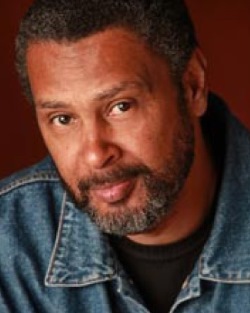

by Murrel Bland
William Allen White was concerned about free speech, factual news coverage and the importance of putting principle ahead of party politics.
Those were among the issues that concerned White, the famous small-town editor from Emporia, Kansas, a century ago. Those same issues resonate today in American society as shown in the new documentary film, “William Allen White: What’s the Matter with Kansas.”
Kevin Willmott, a professor of film and media studies at the University of Kansas at Lawrence, directed the 90-minute film.
The Wyandotte County Historical Society will sponsor a showing of the film at 5 p.m. Wednesday, Sept. 12, in the Performing Arts Center at Kansas City Kansas Community College, 7250 State Ave. Admission will be free and the community college will be a co-sponsor of the event.
Willmott will conduct a workshop at 4 p.m. for aspiring independent filmmakers. This will be of particular interest for students.
Willmott has received high recognition for his films including awards from the Sundance and Cannes film festivals. He also directed the film “Jayhawkers,” a story of Wilt Chamberlain who played basketball at KU during the 1950s; Chamberlain, who was black, was a scoring ace despite often being the target of racial hatred. Willmott also was a screenwriter on the current feature film, “BlacKkKlansman.”
White’s 1896 editorial “What’s the Matter with Kansas” took an aim at the populist movement that had taken root in Kansas and across the nation. This populist movement has been compared to the tea party crowd of today. Several newspapers across the country reprinted the editorial.
White’s 1922 editorial “To an Anxious Friend” won a Pulitzer Prize. White wrote, “You tell me that law is above freedom of utterance. And I reply that you can have no wise laws nor free enforcement of wise laws unless there is expression of the wisdom of the people…” White was concerned about the rise of the Ku Klux Klan.
White’s most famous editorial was the one he wrote about his daughter Mary White, who died in horse-riding accident.
White’s wife was Sally Moss Lindsay White, who was a public school teacher in Kansas City, Kansas. The couple was married in 1893 at 330 Waverly Ave. in Kansas City, Kansas, the home of White’s in-laws.
The documentary is owned by the William Allen White Foundation. It was funded, in part, by the Kansas Newspaper Foundation and was produced by Scott Richardson. A 20-minute version of the film will be sent free of charge to Kansas high school journalism classes.
